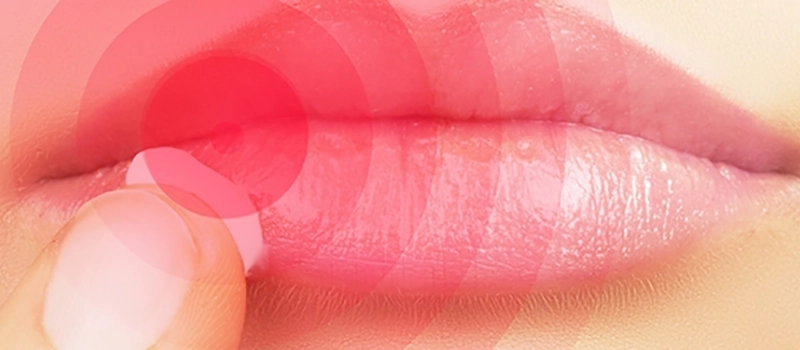
Blemishes may be the bane of existence for people who are overly concerned about their appearance, but not all skin unpleasantries are the same, mostly when you consider whether what you have is a cold sore vs a pimple. A young person’s sebum glands tend to go haywire when they’re in their teens, but pimples are different from acne and even grown adults will get pimples from time-to-time. Cold sores are entirely different and there’s no gland function involved. When an individual is going through cold sore stages it’s because of a virus, and a rather well known one at that. Fortunately, a medication like Denavir cream gets rid of cold sores quickly.
We imagine you’re probably wondering what makes a virus well known and what virus we’re talking about when it comes to cold sores and cold sore stages. You might be surprised to know that cold sores are caused by the herpes simple virus type 1. Cold sores are not the result of sexual contact, although they are found in the same location – on and around the lips. The first thing we will say about a cold sore vs pimple is that cold sores are always around the mouth while pimples aren’t always on the face.
Pimples tend to have more of a simple come-and-go nature to their existence, while cold sores will have an individual going through cold sore stages. Quite often, if you don’t use a cold sores treatment medication like Denavir then you may not clear it entirely. If you have eczema, then this can be an even greater cause of concern with cold sore complications because people with eczema are more likely to have the virus spread. And if it gets to your eyes, then it can threaten your vision.
There’s more to mention about cold sore stages, but your immune system function plays a huge part in whether or not the virus will develop into a cold sore. That doesn’t always happen, and the estimate is that 90% of people have had an HIV-1 exposure, but people who have it don’t always have the cold sores to show for it.
If a cold sore does develop, the person will see it go through 4 distinct cold sore stages:
Tingling, burning, or itching feeling on lips or skin around them
Blisters from within 12 to 24 hours later, with them eventually becoming red, swollen, and painful
Blisters break and begin to ooze fluid (This stage can last up to 3 days)
Scabs for on sore and may crack or bleed before the scab falls off
Other symptoms for cold sores are red or swollen gums, swollen glands in your neck, fever, or muscle aches. But in comparison with cold sore vs pimple, a pimple has a much simpler lifespan. When an individual has a pimple, the skin becomes swollen as the sebum and dead skin block the pore, and then within a few days as the pore begins to flush out the impurities that are troubling it. There are different types of pimples but because the skin healing process is much simpler with pimples and there’s no virus behind the blemish a Vitamin K derivative like Santyl ointment can speed recovering from acne or pimples.
The tingling, burning and itching in stage 1 of cold sore stages and the on-lips location are usually enough to let someone correctly determine if they have a cold sore or a pimple. As mentioned, puberty is the usual cause of pimples and it is true that skin changes as people grow older all through life. It’s only during those teenage years when the sebum glands go into overdrive with oil production. With that being true pimples come and go, while cold sores can be much more complicated. Cold sores have the potential of returning if the virus is given a chance to flourish.
Another consideration with cold sore stages and weighing the differences with cold sore vs pimple is that cold sores can be triggered or made worse by external influences, while pimples are always the product of too much oil being produced in sebaceous glands. We’ll conclude here with this entry by listing all of the other factors that can go into getting cold sores or having them be severe:
Food types
Fever
Stress
Colds
Fatigue
Sunburn or prolonged sun exposure
Dental or cosmetic surgery
Menstruation
These factors can also affect how long different cold sore stages may last. People who tend to get cold sores repeatedly may want to look at these possible influences are contributing to them while continuing to use Denavir cream. Abreva is also a good choice as an OTC cold sore medication.